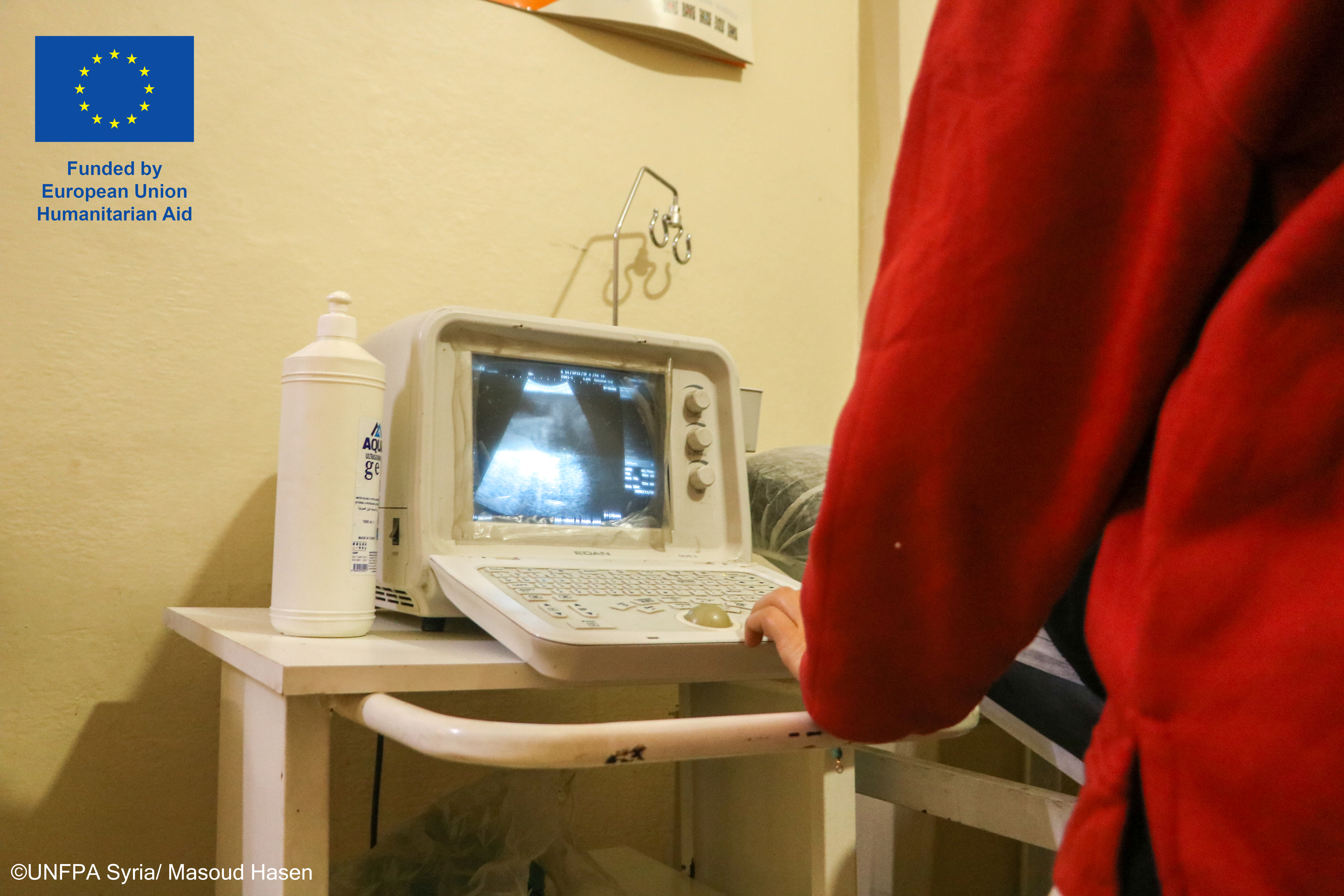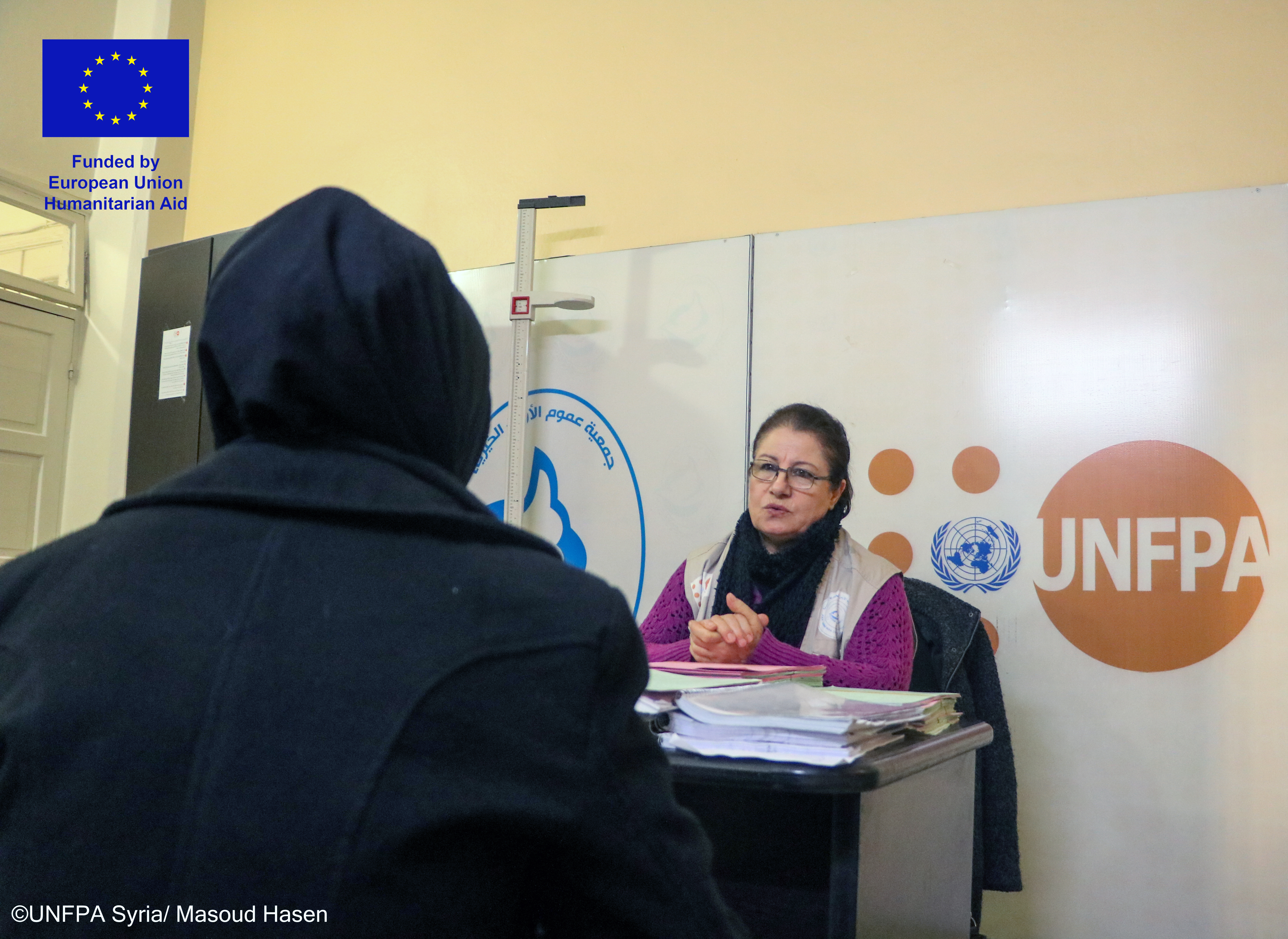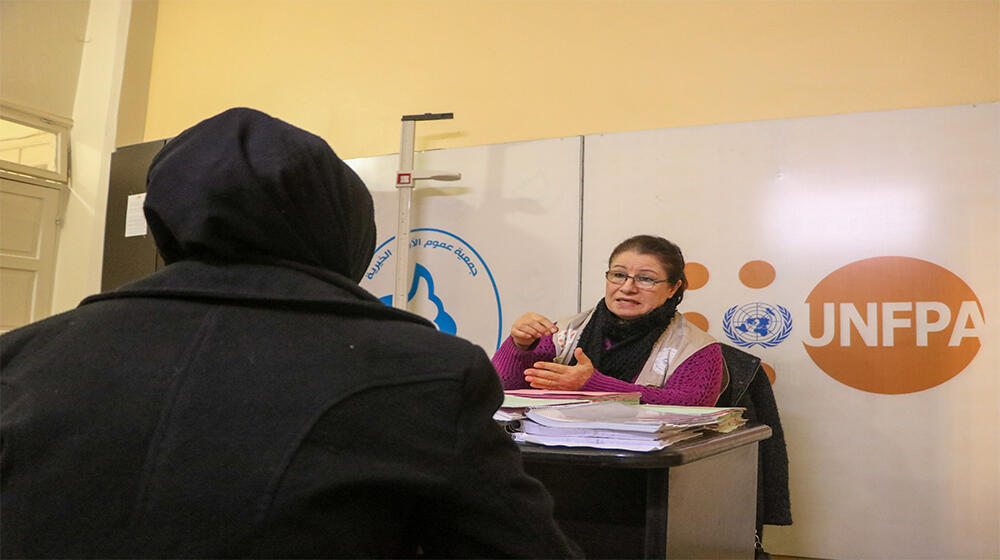“I asked my mother to help me by borrowing some money and accompanying me to a gynecologist,” said Rama.
Rama’s mother made a call to a gynecologist whom she used to visit. And the doctor told Rama’s mother about the UNFPA-supported static clinic in Qamishli City in northeastern Syria, and she recommended them to meet her there as she was the clinic’s gynecologist.
Since that, the UNFPA-supported static clinic has become the first destination for Rama when she wants to check on her health and pregnancy. Because of their harsh living conditions and her husband’s low income, who works as a driver, Rama wasn’t able to visit a private clinic to check on her health and pregnancy.
“Not only the medical services are fine here, but also the team, who work here. They are very nice and welcome us with a standing ovation,” confirmed Rama, who kept visiting the clinic regularly until she gave birth.
“I always listened to the gynecologist and the midwife’s advice in addition to following their orders and directions,” she stated.
EU Joins UNFPA to Support Safe Births in Emergencies

Rama’s first birth through that clinic was in 2017. It took place naturally, smoothly, and safely. As a result, her confidence increased in the clinic’s services and the team’s ability to do their job properly.
“Through my regular attendance at the clinic, I participated in several awareness sessions on various topics like family planning and gynecological infections. That led me to believe that using family planning methods is a good choice for us, especially in our living conditions,” explained Rama.
After Rama gave birth to her baby, she agreed with her husband about spacing between pregnancies through the family planning tools.
“I decided to use family planning methods to let my body relax and to enable sufficient timing to take care of my baby and my family,” she declared.
That wasn’t the only time, that Rama received reproductive health services for safe birth and family planning through the UNFPA-supported clinic in Qamishli city. Since 2017, Rama has given birth four times through this clinic. As well as she also used the family planning methods under the supervision of the medical team in the clinic.
Given that, the UNFPA and the EU believe that women and girls in need have the right to access quality sexual and reproductive health services and to be protected from gender-based violence, the clinic in Qamishli City in northeastern Syria provides the population, in particular women and girls with a wide range of Reproductive health and Gender-Based Violence information and services such as antenatal and postnatal care, health counseling, pregnancy check-ups, treatment of common women infections, family planning methods, one-to-one and group psychosocial support sessions, health awareness sessions, case management services. As well as, the distribution of napkins and hygiene kits.

Approximately, 9,700 beneficiaries received reproductive health and Gender-Based Violence information and services from this static clinic in 2023.
With the generous support from the EU humanitarian aid, UNFPA continues to provide essential Sexual Reproductive Health and Gender Based Violence services in communities throughout Syria.


